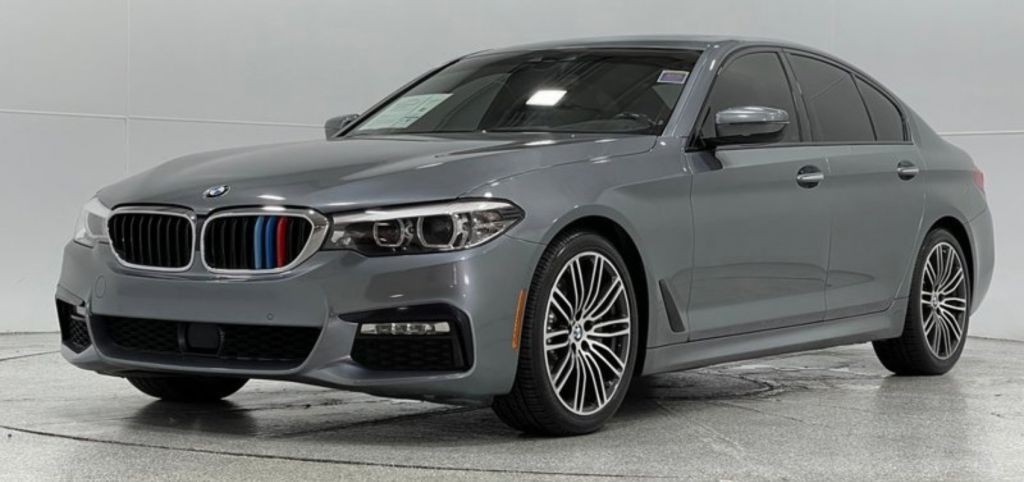German automotive engineering has long been synonymous with superior quality, lasting durability, and excellent resale value in the US market. Among the numerous manufacturers, BMW, Mercedes-Benz, and Audi consistently stand out as the most sought-after brands for discerning drivers in America. At mercedesxentry.store, we understand the nuances of these prestigious marques. While we specialize in Mercedes-Benz, we aim to provide you with an expert comparison to help you navigate your choice.
Reliability: Does BMW Outshine Mercedes and Audi?
The vehicles bearing the three-pointed star, the four rings, and the Bavarian propeller are all celebrated as leaders in the luxury automotive sector. However, BMW frequently achieves higher rankings in reliability surveys. All three brands uphold rigorous standards in development and manufacturing, incorporating cutting-edge advancements in powertrains, transmissions, and electronic systems, alongside exceptional levels of comfort.
The inherent similarities in their offerings stem from the intense rivalry between these manufacturers. When one brand introduces an innovative model or feature, the others quickly strive to counter with their own advancements. This competitive spirit is evident in the model lineups each manufacturer presents. Mercedes-Benz, Audi, and BMW all offer a comprehensive range of vehicles, including compact, mid-size, and executive sedans, as well as high-end luxury cars, ensuring a model to meet diverse needs and preferences.
Mercedes, BMW, or Audi: Defining the Ideal Choice
Despite their shared German heritage and market segment, Mercedes-Benz, BMW, and Audi each possess distinct characteristics that contribute to their unique brand identities. Determining which brand is “better” ultimately depends on your individual driving style, personal tastes, and practical requirements.
Brand Recognition: The Undisputed Prestige of Mercedes-Benz
Mercedes-Benz often commands a higher price point compared to its competitors, a reflection of its unparalleled brand recognition. With a legacy in automotive manufacturing dating back to the 19th century, Mercedes-Benz has cultivated an image of ultimate luxury and sophistication. However, for buyers prioritizing functionality and value, the premium associated with the Mercedes-Benz badge may not always be justified.
All-Wheel Drive Prowess: Audi’s Quattro System
When it comes to all-wheel drive systems, Audi’s renowned Quattro system stands out. Featured across its SUV range and many sedan variants, Quattro enhances handling, safety, and road grip in all weather conditions. While BMW and Mercedes-Benz historically favored rear-wheel drive configurations, particularly in their classic models, the shift towards all-wheel drive is increasingly noticeable, especially in the compact vehicle segment, to cater to modern driver demands for enhanced control and stability.
Model Range Diversification
-
BMW, while lacking a full-size SUV in the traditional sense, excels in the mid-size SUV category with the iconic BMW X5. However, in terms of sheer size and comfort, the X5 is positioned below the larger Audi Q7 and even the more compact Audi Q5. Mercedes-Benz responded to the groundbreaking BMW X6 with its own coupe-SUV, the GLE model. Yet, Mercedes-Benz has cemented its reputation with other iconic vehicles, most notably the G-Class, an SUV that surpasses all rivals in terms of iconic design and off-road capability.
-
Mercedes-Benz is actively expanding into more accessible vehicle segments, including subcompact cars, a territory not as heavily explored by its German competitors, aiming to broaden its market appeal.
-
Audi strategically balances luxury with performance, consistently introducing high-performance sports versions across its model range, appealing to enthusiasts seeking both refinement and driving excitement.
Electronics and Technological Innovation
Advanced electronics are a standard feature in modern BMW, Audi, and Mercedes-Benz vehicles. Digital instrument panels, sophisticated control systems, and intelligent driver-assistance technologies are commonplace, designed to simplify the driving experience and enhance safety. However, the complexity of these systems also raises the potential for malfunctions. In terms of electronic sophistication, Mercedes-Benz tends to lead, incorporating the most cutting-edge, and sometimes intricate, technologies.
The increased digitalization can sometimes lead to system delays or software glitches. Audi strikes a balance in this area, offering advanced technology that is comprehensive yet user-friendly and less prone to overwhelming complexity. It effectively supports the driver with data from numerous sensors without overcomplicating the interface.
BMW adopts a more minimalist approach to electronics. While equipped with all essential technological components, BMW prioritizes driver engagement, ensuring that technology enhances rather than overshadows the driving experience. Alongside digital interfaces, BMW retains physical buttons and switches, providing a tactile and intuitive control option favored by many drivers.
Audi vs. Mercedes vs. BMW: Defining Brand Identity
The debate over which brand is superior – Audi, Mercedes-Benz, or BMW – is ongoing and subjective. Each brand presents a unique blend of strengths and weaknesses, along with distinctive characteristics that some may perceive as drawbacks while others appreciate as part of the brand’s personality and heritage.
-
Whether you choose a compact BMW 3 Series or a flagship 7 Series, the brand’s aggressive, sporty, and youthful driving dynamics are unmistakable. Behind the wheel of a BMW, the urge to accelerate, to engage with the road, and to experience dynamic handling is always present.
-
Mercedes-Benz embodies the ideal car for those who prioritize comfort and serenity, often favored by executives and dignitaries who appreciate the option of being chauffeured. Mercedes-Benz models often offer superior rear-seat space, further enhancing passenger comfort.
-
Audi occupies a strategic middle ground. There’s a sense of long-term vision in Audi’s approach, designing vehicles with a balance of performance, technology, and luxury that appeals to a broad audience. Automotive reviews frequently highlight Audi’s balanced approach, positioning it as a compelling choice compared to the sometimes more overtly opulent Mercedes-Benz and the overtly performance-focused BMW.
Car Value and Maintenance Costs: Evaluating Long-Term Expenses
Mercedes-Benz vehicles typically represent the higher end of the price spectrum within comparable vehicle classes. BMW and Audi maintain more closely aligned pricing strategies, with slight variations depending on specific models and dealerships.
Regarding maintenance, repairs, and spare parts for pre-owned vehicles, BMW tends to incur higher costs compared to Audi or Mercedes-Benz. Audi holds a slight advantage in terms of maintenance costs due to its component sharing with Volkswagen and Škoda, which can reduce parts expenses and improve availability.
BMW vs. Audi vs. Mercedes: The Test Drive Verdict
Experiencing these brands firsthand on the roads of Indianapolis underscores their distinct characteristics:
-
BMW delivers an assertive driving experience with a firm suspension that may feel less refined at lower speeds but excels in high-speed handling and dynamic cornering.
-
Mercedes-Benz provides a supremely smooth and composed ride. While possessing powerful engines and capable acceleration, the emphasis is clearly on comfort and relaxed cruising rather than outright performance.
-
Audi achieves a harmonious balance: offering brisk acceleration combined with responsive electronic controls that enhance driver confidence and compensate for road imperfections and driver inputs, creating a refined and assured driving experience.
Schedule your test drive at Indy Auto Man today and experience firsthand whether BMW, Mercedes-Benz, or Audi best aligns with your automotive preferences!

